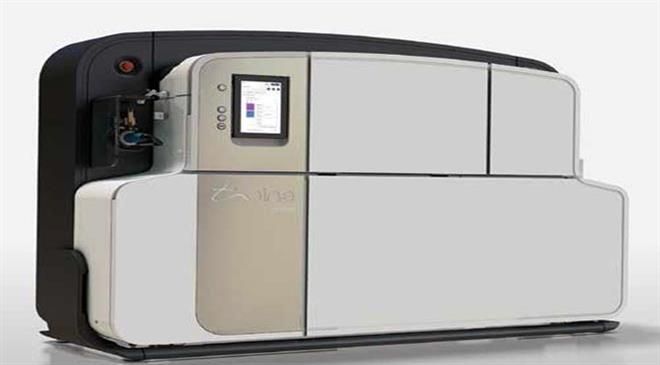World's first digital thread dyeing system
Founded in Israel in 2015, Twine Solutions is a tech start-up that has developed a proprietary digital on-demand thread dyeing system and a digital dye-to-match colour application. Yariv Bustan, vice president, product and marketing, talks about technologies on display at ITMA Barcelona, textile industry catching up to the plug-and-play model, and future collaborations.
How would you describe the market for on-demand thread dyeing system? Is the plug-and-play machine model catching up in textiles?
The market has already started to change. Ondemand and digitalisation are the missing links in the market today. No matter who you are and what position or role you hold in the supply chain, you are limited to the current constraints of a long analogue process, large volumes that lead to big 'minimum order quantities' (MOQ) and excess inventory. All these will be dramatically reduced and even eliminated with Twine's technology. Regarding plug-and-play, textile is no different than any other industry. Everyone is after simple operation and minimal maintenance.
What has changed in terms of technology employed since the inception of the company?
Twine's seasoned team of professionals, most of whom come with deep experience in the industry across a variety of disciplines- materials and process, physics, nanomaterials, algorithms and mechanics-are eager for new technologies and are busy with perfecting the technology day in and day out. Our technology is improving constantly to increase the variety of thread sizes and types that the system can digitally dye.
Which are your major markets?
The solutions Twine offers appeal to many markets. We aim to start with: sewing, embroidery and knitting sectors, and expand into other relevant markets in the future.
Until 2017, Twine systems could dye polyester-type threads only. What other kinds of threads can be used now?
Polyester threads are leading the market in terms of capacity. Activewear, footwear, home textiles and many more applications are made from polyester. This is our main motivation for focusing on this material. What has changed is the variety of different types of polyester thread and yarns that we can digitally dye today, including raw, recycled and off-the-shelf white thread, spun and filament. The next material that we will add to our capabilities is nylon, as our feasibility test showed promising results.
What is the cost of installing Twine's DST system? How much will it affect the returns?
The product cost will be communicated at ITMA as part of the official product release. In general, we are introducing a cost-effective solution, with a fast return on investment that will be attractive to a large variety of customer types and profiles.

How cost-effective would Twine be for small processors, say in Surat (India), which is the hub for this segment of the textile value chain?
The answer varies with the size and the nature of the business. Generally, each processor that has more than 10 sewing machines or embroidery heads can benefit from our technology; some for full production, others for last-mile production and fashionable colours, and others for sample-making and research and development, as well as for personalised or unique items.
What is the degree of colour fastness that Twine promises?
We offer the highest international quality standards and received 4-5 grade from Intertek and Oeko-Tex 100 class 1 certification.
Till what thickness of thread can Twine be used?
We are evaluating and testing many types and sizes of thread and yarns. The thickest thread that we support at this point in time is 800 denier.
Is the unique on-demand technology patented?
Our technology is covered by several published and unpublished patent applications in different stages. We are constantly looking for the next developmental horizons and the necessary intellectual property protection.
Coats recently became a strategic investor in the company. Can we expect more such partnerships and collaborations in the future?
We are also collaborating with Pulse Microsystems, the embroidery digitising software company. The collaboration enables our customers a seamless production. Twine's system can read the same digitised file that goes to the embroidery machine, and by doing that, the system will automatically produce the exact colour and length per design without human interference. This is also part of our vision for Industry 4.0 or Textile 4.0.
Besides sewing and embroidery, are there any other categories where the application is growing?
Sure. Flat knitting and circular knitting are also part of our supported sectors. In addition, we also support the quilting sector-all of them with many different applications.
What innovations and technologies are you displaying at ITMA Barcelona?
At ITMA, for the first time ever, Twine will present the world's first digital thread dyeing system, the TS-1800, which utilises Twine's DSTTM technology, and an innovative colour matching mobile app, SnapMatchTM, which utilises our TTCTM technology. Visitors will be able to witness how a thread colour is matched and digitally dyed immediately.
What are your expectations from the fair?
We have started to fill our calendar with pre-booked meetings with leading brands and manufacturers. In addition, we expect many visitors with a high interest in our solutions and technologies. We believe that our unique technology will attract a wide range of visitors from various sectors looking for a solution to different applications like apparel, footwear, accessories and activewear.


